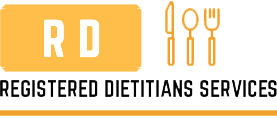Do you suffer from Polycystic ovary syndrome (PCOS) and you were advised to cut carbohydrates?
Are you on a keto diet because of PCOS?
What is the right diet for PCOS?
What is PCOS?
Polycystic ovary syndrome, known as PCOS is a hormonal condition in women involving an unbalance production of androgens, insulin and progesterone. The cause of PCOS is still unknown but it could be genetic. In our body, each hormone is responsible for a specific function. If you have PCOS your body will produce more insulin which is important to regulate blood sugars levels. In turn this will cause your ovaries to react and produce the male hormones in high levels. One of these hormones is androgen hormone which is often low in women but if you have PCOS due to the increased insulin production your androgens will be high. This may cause excessive facial and body hair. In addition, high insulin will also affect progesterone to be produced in lower amounts than needed. Low levels of progesterone may lead to irregular periods or to miss your periods for a long time.
What are the symptoms?
PCOS is associated with various symptoms due to the hormonal imbalance. Apart from the symptoms of excess hair, irregular periods and missing periods mentioned above, it also includes having acne, a lot of small cysts in the ovaries and difficulty in losing weight.
It is important to recognize the symptoms of PCOS as it can put your health at risk for insulin resistance syndrome. In other words, the metabolic syndrome. This syndrome includes risk of obesity leading to Type 2 diabetes, high cholesterol levels and high blood pressure. It also leads to a higher risk of abnormal growth of the lining of the uterus and endometrial cancer.
How is PCOS treated?
Currently, there is no cure for PCOS but it can be managed by diet and lifestyle. Maintaining a healthy weight is the main factor to control PCOS as much as possible. This can be achieved by exercise and a balanced diet. Studies show that women with PCOS benefit from 30 minutes of exercise 5 times a week as there is a strong positive correlation with cardio – metabolic outcomes.
What diet is recommended for PCOS?
Currently, the trend for PCOS is a low or a no carb diet. As, I previously explained in my blog about carbohydrates , carbs offer various health benefits such as energy, protects against diseases and a rich source of vitamins & minerals. So the question for a women with PCOS is: should I eliminate carbs?
The evidence suggests that a diet for PCOS should contain a low glycemic index (GI). A low GI diet is rich in fiber, a type of carbohydrate which slows digestion, proteins and healthy fats. This diet rich in fiber causes a gradual increase in blood sugar levels rather than a spike, as shown in the graph below:
Some examples of high fiber foods are
- Wholegrain bread
- Wholegrain pasta and rice
- Wholegrain cereals such as oats
- Fruit
- Vegetables
Studies show that women with PCOS had an improved menstrual regularity when they followed a low GI diet as less blood sugar spikes improved insulin sensitivity. It is important to highlight that a low GI diet does not mean a low carb diet. It still means that 50% of your calorie intake should come from carbohydrates for proper metabolic and brain function.
In conclusion, the recommendation for a PCOS diet is high fiber carbs, lean proteins and healthy fats. So the good news is that you can still enjoy plenty of tasty carbs but choose high fiber ones. In addition, exercise can also moderate insulin levels. The minimum daily exercise recommendation is 30 minutes of any type of exercise which you love to do.




